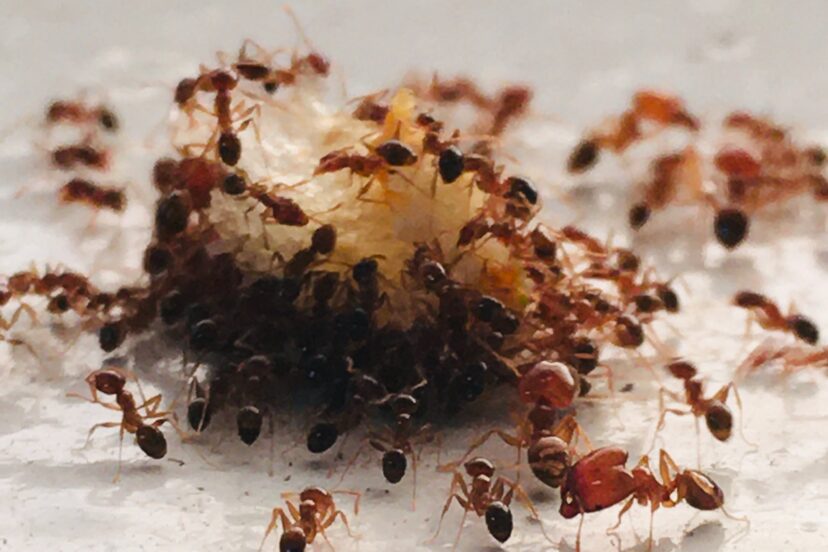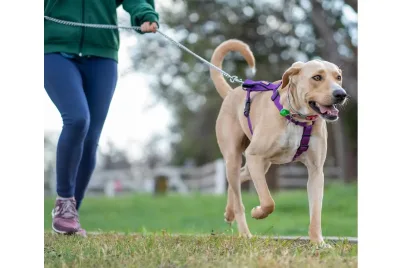Are ant traps pet safe? My dog ate an ant trap
Introduction
As a devoted dog parent, I understand the importance of keeping our furry friends safe from potential hazards and how concerning it can be when our furry friends get into something they shouldn’t. Dogs are naturally curious creatures and one common situation that can cause worry is when our dogs consume an ant trap – are ant traps pet safe? In this article, I will guide you through the necessary steps to take if your dog eats an ant trap and provide helpful suggestions to keep your pet safe. So, let’s dive in and address this issue together.
Understanding Ant Traps and Their Risks to Pet Safety
Ant traps are commonly used to control ant infestations in our homes. They come in various forms, such as bait stations or gels, and usually contain substances that attract ants and deliver a toxic ingredient to eliminate them. While ant traps are effective for their intended purpose, they can pose risks to our pets if ingested when they are not pet safe ant traps.
- What are ant traps? Ant traps are designed to attract and eliminate ants by luring them to the trap’s bait, which is often mixed with a toxic substance. The traps are strategically placed to target ant colonies and disrupt their activities.
- Common ingredients in ant traps: Ant traps commonly contain active ingredients such as borax, abamectin, or fipronil. These substances are effective against ants but can be harmful to pets if consumed in large quantities.
- Potential dangers for pets: When a dog ingests an ant trap, it can lead to various health issues. The toxic ingredients in the ant trap may cause symptoms such as drooling, vomiting, diarrhea, weakness, tremors, or even seizures. It’s important to take immediate action if you suspect your dog has ingested an ant trap.
Signs that your dog may have ingested an ant trap
Detecting whether your dog has consumed an ant trap can be challenging, as the signs may vary depending on the amount ingested and the specific ingredients of the trap. However, there are some common signs that might indicate your dog has eaten an ant trap:
- Unusual drooling or excessive salivation
- Vomiting or diarrhea
- Loss of appetite or reluctance to eat
- Lethargy or weakness
- Tremors or seizures
If you notice any of these symptoms or suspect that your dog has ingested an ant trap, it’s crucial to take immediate action to ensure their safety.
Immediate actions to take
1. Contacting a veterinarian:
Reach out to your veterinarian as soon as possible. They are the best resource to guide you through the necessary steps based on your dog’s specific situation. Provide your veterinarian with information about the ant trap your dog ingested, including the active ingredients if known.
2. Providing supportive care at home:
If advised by your veterinarian, you may need to provide supportive care to your dog at home. This can include keeping them comfortable, offering small sips of water, and monitoring their symptoms closely.
Treatment options for ant trap ingestion
When it comes to treating ant trap ingestion, the approach will depend on the severity of the situation and your veterinarian’s recommendations. Here are some common treatment options that might be considered:
1. Inducing vomiting:
In some cases, your veterinarian may recommend inducing vomiting to remove the ant trap from your dog’s system. This should only be done under their guidance and supervision.
2. Activated charcoal administration:
Activated charcoal can be given to your dog to help absorb any remaining toxins in their stomach. This can be an effective measure to prevent further absorption into their system.
3. Monitoring and follow-up care:
After your dog has ingested an ant trap, it’s essential to monitor their condition closely. Follow any instructions provided by your veterinarian and schedule any necessary follow-up appointments to ensure your dog’s full recovery.
Preventing ant trap ingestion in the future
Prevention is always better than cure when it comes to our pets’ safety. Here are some measures you can take to reduce the risk of your dog ingesting an ant trap:
1. Pet safe ant traps and alternatives:
Consider using pet-safe ant traps or natural alternatives that do not contain toxic ingredients. These products are designed to be effective against ants while posing minimal risks to our furry friend.
2. Securing ant traps:
Place ant traps in areas that are inaccessible to your dog. Consider using ant traps that are specifically designed to be pet-resistant or use other methods to deter ants from entering your home.
3. Regular pest control and cleaning:
Maintain a clean and hygienic environment in your home to discourage ant infestations. Regularly clean up food spills, seal any cracks or openings, and address any other potential entry points for ants.
Conclusion
Discovering that your dog has eaten an ant trap can be a stressful situation, but by taking quick action and following the guidance of your veterinarian, you can help ensure your dog’s safety and well-being. Contact your veterinarian immediately, provide supportive care as instructed, and take preventive measures to minimize the risk of future incidents. Use pet safe ant traps to combat any future ant infestations. By being proactive and informed, you can protect your dog from potential hazards.
FAQs
1. Q: Can ant traps cause long-term health issues in dogs?
A: While the toxic ingredients in ant traps can cause immediate symptoms, long-term health issues are unlikely if the ingestion is promptly addressed and treated by a veterinarian.
2. Q: Are all ant traps toxic to dogs?
A: Not all ant traps are toxic to dogs. Look for pet safe ant traps. Many ant traps contain ingredients that can be harmful if ingested. It’s essential to choose pet-safe ant traps and alternatives or take preventive measures to avoid any potential risks.
3. Q: Should I induce vomiting if my dog ingests an ant trap?
A: Inducing vomiting should only be done under the guidance of a veterinarian. They will assess the situation and determine if vomiting is necessary or if other treatment options should be pursued.
4. Q: Are there any natural remedies to repel ants without using traps?
A: Yes, several natural remedies can help repel ants, such as using vinegar, lemon juice, or essential oils like peppermint or lavender. These methods can be effective in deterring ants without posing risks to your dog.
5. Q: How long does it take for a dog to recover from ant trap ingestion?
A: The recovery time can vary depending on the severity of the ingestion and the treatment provided. It’s crucial to follow your veterinarian’s instructions and monitor your dog’s progress to ensure a full recovery.




